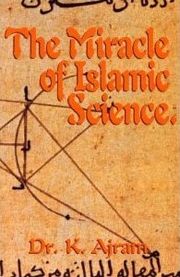Template:Pictorial-Islam-options: Difference between revisions
| [checked revision] | [checked revision] |
mNo edit summary |
mNo edit summary |
||
| Line 1: | Line 1: | ||
<noinclude>Also see: [[Template:Pictorial-Islam]]</noinclude><!-- HELP NOTES: Each option tag handles one random story --><choose> | <noinclude>Also see: [[Template:Pictorial-Islam]]</noinclude><!-- HELP NOTES: Each option tag handles one random story --><choose> | ||
<option weight="1">{{Pictorial-Islam|1=Salah: Praying Towards the Ka'aba|2=[[File:Praying towards the Ka'aba.JPG|220px|link=Salah]]|3=Due to the sphericity of the earth, a prayer in any direction will point towards the sky/outer-space, not Mecca. People who are located on the opposite 'side' of the earth would have to pray vertically down towards the center of the earth, and would also blaspheme against Allah, because they defecate toward the direction of the Ka'aba when they answer the call of nature. If we use the traditional Muslim method of determining qiblah (i.e. a great circle) this would still be blasphemous because you would be simultaneously praying with your face and backside aimed towards the Ka'aba. For people located on the opposite 'side' of the earth any direction for all 360 degrees would be facing 'towards' Mecca and consequently, there would be no one direction that would be the correct one. ([[Salah|''read more'']])}}</option> | |||
Revision as of 03:03, 5 January 2014
Also see: Template:Pictorial-Islam
|
